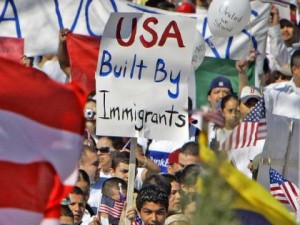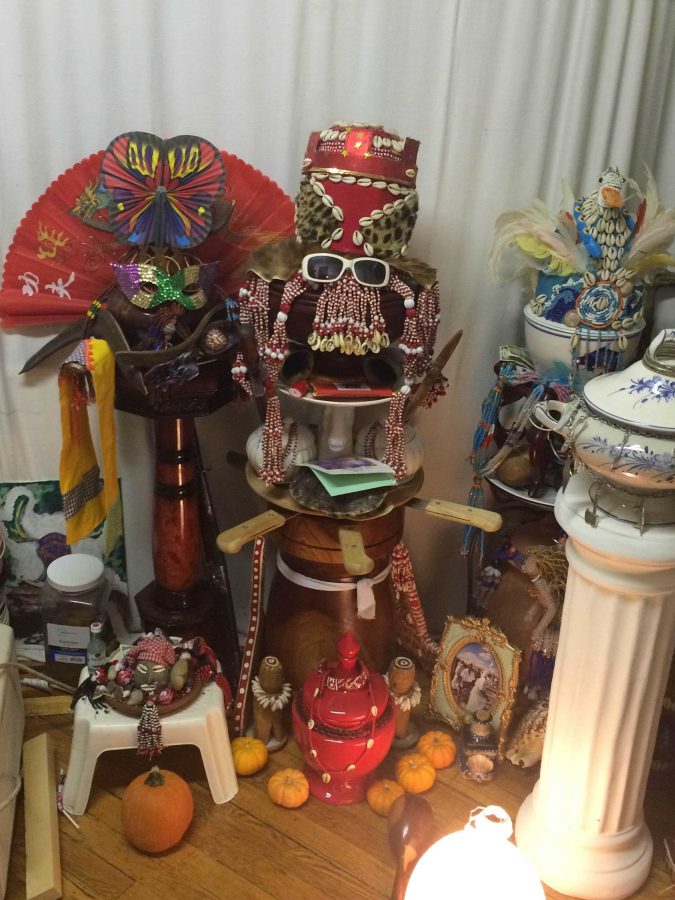By Juan Bustos —

“Vamos Messi vamos!” Lionel Messi, Barcelona’s top player, weaves right then sharply turns up and effortlessly avoids a slide tackle as though he’s running on air. The world’s greatest soccer player is pure magic and controls the spherical ball as though it were the world itself. The “little flea” as he’s known in Spain moves the ball as though he has a string on his foot.
This night however, it’s not Messi dispensing the magic and setting the tempo of the match it’s Mario Rodriguez, the 18 year old boy who’s controlling him. We’re playing FIFA 2011 on Sony’s Playstation 3 and he just handed me my third straight loss. Damn Barcelona and Messi. Don’t they know that my team, Real Madrid, skill level is a mere perfect 98 (maybe not when I play.) My strikes seem to always miss way off when I hold the tauntingly labeled “o” button.
“Le falta practica mijo”, Mario mockingly quips with his Colombian accent. Yes Mario, I do need practice.
These days Sony’s fantasy transporting device commonly known in this household as “el play” is the closest he’ll ever get to seeing Barcelona and the famous soccer virtuoso. Mario could go to Spain. Newark is only 15 minutes away from his home here in north Jersey. However, if goes he could never come back. Never come back to his mother’s fried maduros. Never come back to his friends. Never come back to his “play”.
Mario is of one the 11.3 million illegal immigrants living in the US today and one of the 240,000 living in New Jersey.
Mario is 6’2 with model good looks. He could play the part of a young Adrian Brody. He’s slim like a teenage bamboo stick. He has jet black hair that he styles in the fashion of soccer demigod, Cristiano Ronaldo which is faux Mohawk in front and mullet in the back. A dead give away that’s he’s not your average American teenage boy. His skin is fairer than brown illustrating that wherever his ancestors are from they got there by via of European descent. His eyes are everything but plain brown. They’re a window to a soul that’s introverted and longs to always be somewhere else. However there’s also darkness in his stare, which must reflect the hardships of a life that’s been trained to be in the receiving end of injustice. The growth spurt for this teenager must have been particularly awkward, because although he’s always been told not to standout at his height he’s hard to miss. This eternal struggle reflects itself physically in his minimalist posture and pace.
Mario came to this country in 2007 when he was only 14. His father Mario Sr. tells me the Rodriguez clan pooled all their assets together so they can show more money on their bank account. The US checks financial records as one the checklists for providing someone with Visitor’s Visa. Mario Sr. with the help of his brothers in Colombia temporarily transferred a little more than 15 grand into a savings account and the US granted them a Visa. They are now part of the 43% of illegal immigrants who have expired visas; they are called Visa Overstayers by Section 1325 of Title US Code which defines improper entry of an alien.
Defrauding the US, check.
And like any guest who overstays their welcome, the Rodriguez brood makes the best of their stay and tries not to be conspicuous. They live in a small 2nd floor apartment on Kennedy Blvd. right across the street from the newly built campus of Hudson Community College. Mario Sr. works mostly odd jobs in construction. He typically earns less than half of that of a license contractor. He’s quite handy, he fixed the stairs and doors on the house they live in and in return the landlord took of $300 off one month’s rent. Liliana Rodriguez, the matriarch, works mostly as a babysitter and in occasion will do some cleaning services to whoever is paying. She cleans 2 rooms, kitchen, bathroom and living room for about $80, and the price is always negotiable. Her last client Senora Maria, a pastry owner from up the street on Bergenline Ave. paid her only $60. Liliana doesn’t mind, because she knows she’ll hire her again. Then there’s Sandra Rodriguez, the 15 year old daughter in high school. Her job is to do the house chores and on occasion help her mother do cleanings. Her father tells her to work hard and study, but she often replies, “pa’que” for what.
“University is for people with green cards.”

It’s hard to disagree with her, as Mario himself just graduated North Bergen High and now spends most of his time cleaning dishes in an upscale Mexican restaurant in Hoboken. A restaurant he can only afford to wash dishes in, not eat one. Americans are pendejos or idiots according to him.
“They spend $20 for tacos, when it’s the same thing as Taco Bell.” Yet, he wishes to be a pendejo himself someday.
It’s a shame Mario doesn’t hangout in Hoboken like most kids his age. His best friend Luiz says, “Mario is a good kid, but in this country the only that matter is dinero.” The only way to make money here is through an education, and therein lies the rub for Mario. He finds himself in perpetual purgatory.
Oscar Moret, the energetic director of legal services at the International Institute of New Jersey, a non-for profit, helping the immigrant community in Jersey City, agrees, “even if they can attend college the biggest problem is the money.”
“You can fake a social security card and get in but how are you going to pay for it when the Dream Act hasn’t been passed yet.” The Development Relief and Education for Alien Minors is bill that’s been circulating through congress. It would provide residency to illegal aliens with a clean criminal history and who’ve graduated from high school. The bill would also allow for these green card holders to have access to in-state tuition and in some cases like in the California Dream Act be eligible for Financial Aid.
It’s better to have these kids in college after high school then on the streets.
The IINJ was established in 1918. It’s one of the oldest and most sought after immigrant centers in the Northeast. Some of the immigrants come all the way from Washington, D.C. looking for advice. Located on the 4th floor of Journal Square 1 the crew that steers the small office mainly helps new immigrants navigate through legal waters like studying for the Citizenship test and fighting a deportation process. Moret’s office also helps represent abuses that go on by employers that prey on the immigrant laborers.
Moret himself is a manifestation of an American Dream that is so rarely achieved by immigrants today. He emigrated to US in 2006 from Cuba where he was a lawyer and professor at the University of La Havana. He’s journey started in Cuba, and he arrived to Texas via Dominican Republic, Guatemala and then Mexico. He’s personal story of struggle gives a him authenticity that those seeking advice admire. When he first sought advice from the IINJ, he was taken back by their willingness to help that he decided to volunteer there. By night, he would work the late shifts at a restaurant and volunteer at the center during the day. He put himself through the necessary schooling at Bronx College and was rewarded when he went from Volunteer, to employee, to one of the Directors of the institute.
It’s that success story that so many of his clients wish to imitate.
Mario is not very optimistic about his future. The Dream Act only serves those who came here 5 years prior to bill’s introduction which means Mario should have left Colombia when he was 13 not 14.
The only thing which brings Mario to life now is playing the beautiful game or soccer how it’s known in here the US. Luiz admits that Mario is one of the most gifted players on the pitch. He could have played for his high school, but chose not be in the spotlight. Luiz calls him a natural goliador or goal scorer and at 6’2 it’s hard to contest that point when he goes up for header. If his legal status weren’t a question, he probably would have had a full scholarship in a college in desperate need of fortifying their squad up front.
Click here See Kicking’n it Towards Progress: Soccer 101 story
Soccer for now is his only distraction to a world where only washing dishes is for certain. Everything else is questionable. For as he stares into the TV and plays with his favorite team, Barcelona, he glimpses through the window and fixes his eyes across the street.
The majestically built 4 story building of promises to enlighten all those who enter and bridge the gap to the land of opportunity. Except of course, for the boy who lives across the street.





